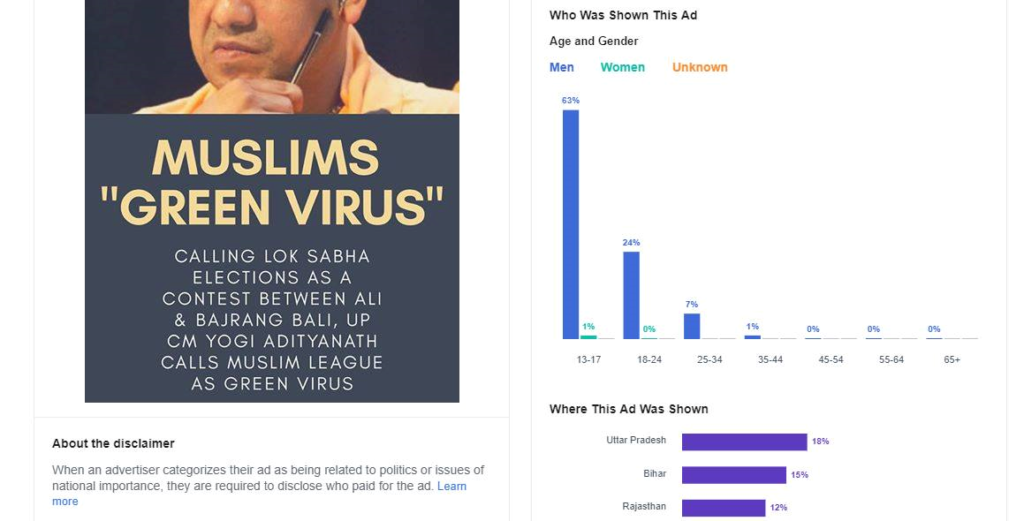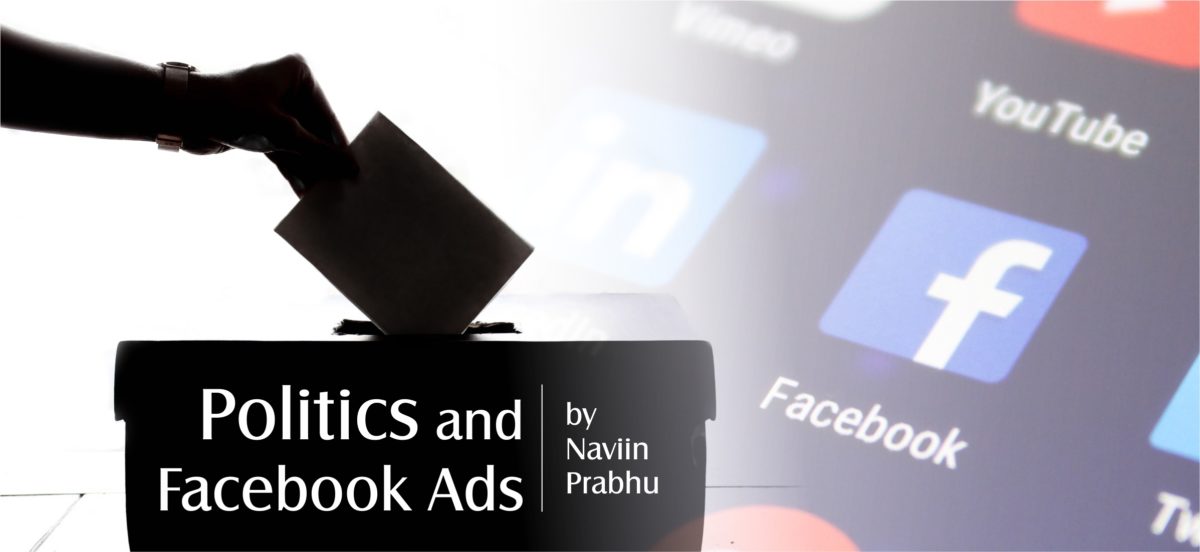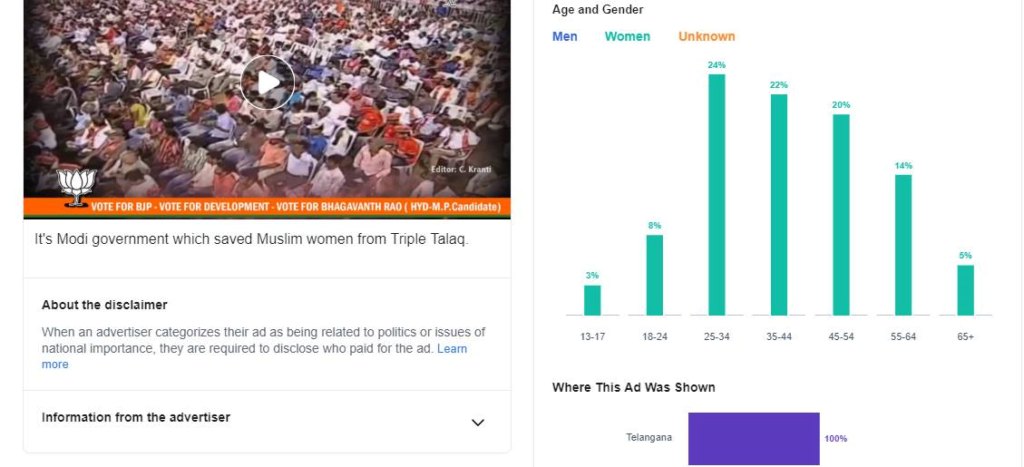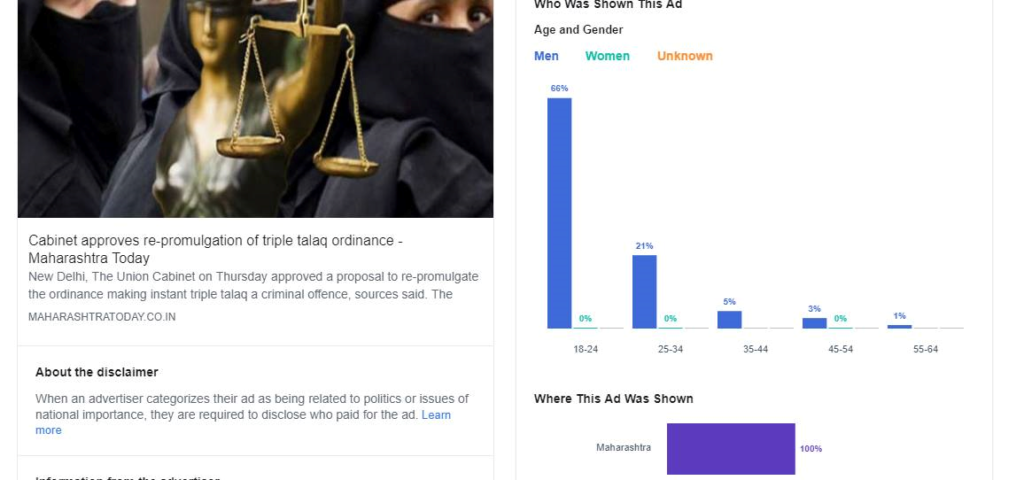The observation and Facebook Policy
Not so long ago, by the end of April 2019, I noticed an intriguing Facebook ad titled, “Does EU need its own army?” I scrolled through it and didn’t give it a second thought. A few hours later, the same page’s advertisement read, “Should all EU countries take equal share of immigrants?” This sparked my interest, not on the topic, but on what the page was trying to do, which was attracting engagement through targeted ads on highly polarizing topics. For those who are not aware, Facebook made their advertisement process completely transparent to counter political profiling, which it was accused of during the US elections in 2015. You can always click, “Why am I seeing this ad?”, to get to know your category, which in this case it was targeting “Non-Violent” people within the age groups of 25-50 in Poland. I dug into the Facebook ads library (this is a comprehensive database which can be keyword searched for ads on any topic with current and past ads) and, boy, did I hit a hornet’s nest.
Facebook policy mandates that any political campaign must mention its source of funds, which the ads I received did not possess, and was taken down upon reporting. When I went through the page’s advertisement history, they make hundreds of these campaigns, pumping in thousands of dollars for highly polarizing content. I went on to searching for other hot topics and landed on Brexit.
Example of Facebook campaigns for Brexit
The keyword “Brexit” in the UK alone has thousands of ads and the top two pages, right (Britain’s Future) and left (People’s Vote UK), have spent millions of pounds on ad campaigns in the last year alone. The “For Brexit” campaigns target elderly people of 50+ age range, and the against Brexit ads target a wider audience. Below are some of the screen shots from my findings.
Example of Facebook campaigns from India
Another example that I stumbled upon was with the keyword “Muslims” in India and it has it’s own interesting twists. The ads against this religion target a large audience, but the twist is, the ads saying, “Modi saved Muslim women from Triple Talaq”, only target women. Unsurprisingly, the left side of the political spectrum promotes this news only to men of same age group.
Crimes against the religion is targeted at Kashmiris and crimes by them are targeted to North and Central India. These are just examples found at the tip of the iceberg, and it’s peaked my interest, to say the least.
I wish I were a programmer to word crunch through all the keywords across the globe and make my computer spit out useful inferences.
We are responsible
I can say this for sure though, if you are looking for the guilty party, all you need to do is look in the mirror. People have been and will be manipulated for money and power wherever opportunities present themselves, neither the right nor the left care for harmony. Each will continue to push people to demonize the “other side” for political gain. The biggest psychological barrier to truth is our confirmation bias. We tend to be satisfied with the news and information that confirms our views and political outlook or to call contrasting information fake without fair judgement. Don’t lose your friends over political and religious differences. Practice “political grace”. I have friends from all political, religious and ideological spectrums and our group is still in one piece. So next time you see such content, don’t let it influence your support or rage without first investigating the headlines and seeing beyond the hype.
I also highly recommend social media manipulation series videos by Destin on his YouTube channel Smarter Every Day , it was an eye opener for me.
Hope this was useful!
Best,
Naviin Prabhu
(edited by: Marta Pytel and Yash Chawla)
Marta is an English native speaker and offers proof-reading and editing services. Please contact her at pytel.marta@outlook.com if you require these services.




